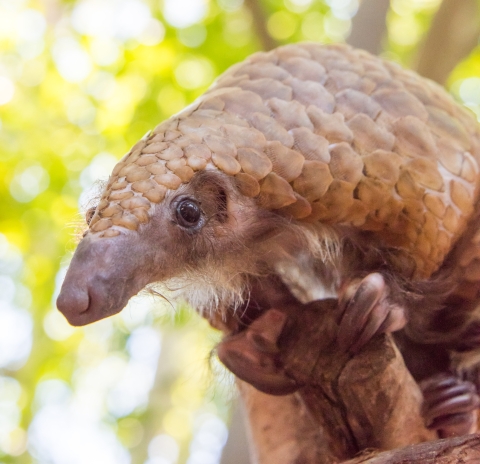What We Do
Our Services
We provide financial and technical support through partnerships to combat threats to wildlife habitats and strengthen capacity for conservation around the world; implement domestic laws and international treaties, including the Convention on International Trade in Endangered Species of Wild Fauna and Flora (CITES), and provide policy leadership on international wildlife trade and on combating wildlife trafficking; issue permits that allow individuals, organizations, businesses, and others to engage in legal, sustainable trade and participate in international wildlife conservation in numerous ways; and bring the perspective of wildlife and conservation to interagency work around preventing the spread of zoonotic diseases and adapting to climate change climate change
Climate change includes both global warming driven by human-induced emissions of greenhouse gases and the resulting large-scale shifts in weather patterns. Though there have been previous periods of climatic change, since the mid-20th century humans have had an unprecedented impact on Earth's climate system and caused change on a global scale.
Learn more about climate change .
The Value of Permits
Permits are a conservation tool that balance the use of animals and plants with their sustainability in the wild. We understand the value of wildlife and plants to livelihoods and businesses that support people across the United States. Our permittees include individuals and industries that trade in wildlife and plants such as American ginseng, timber and wood products, biomedical and horticultural items, live animals, and fine arts and antiques.
In the United States, the legal wildlife trade is a multibillion-dollar industry. Permits we issue make it possible to export, re-export, import, and trade in protected wildlife species that may be otherwise be prohibited. These permits also enable people to travel abroad with their pets, including pet birds, allow hunters to bring home their personally hunted trophies, and the permits assist in the protection of natural resources while serving as a tool to combat wildlife trafficking around the world.
more about international affairs permits
Our Laws and Regulations
Our work is mandated through some 40 domestic laws, international treaties, and other multilateral agreements including the Endangered Species Act (ESA), CITES, Multinational Species Conservation Acts, Eliminate, Neutralize, and Disrupt (END) Wildlife Trafficking Act, Pelly Amendment to the Fishermen's Protective Act, Marine Mammal Protection Act, Canada/Mexico/U.S. Trilateral Committee for Wildlife and Ecosystem Conservation and Management, Convention on Wetlands of International Importance (Ramsar Convention), Western Hemisphere Convention, Migratory Bird Treaty Act, Bald and Golden Eagle Protection Act, Wild Bird Conservation Act, Lacey Act (injurious wildlife), and Cartagena Convention and the Protocol Concerning Specially Protected Areas and Wildlife (SPAW).







